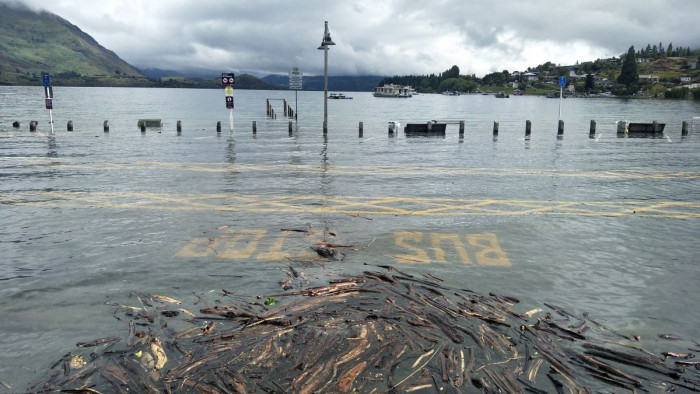Hit enter to search or ESC to close
31 May 2022
How climate is affecting your insurance
Crombie Lockwood's Insurance Market Update May 2022, examines the key factors driving global market conditions and assesses how these are impacting the New Zealand insurance market. Here we look at the affect of climate on your insurance cover.
No matter what your views are on climate change, it is impossible to avoid the fact that the number of severe weather events is increasing in both frequency and severity.

For several years, the global insurance market has been “hard” - premiums are increasing and capacity for most types of insurance is decreasing. Climate-related claims are a key factor driving the hard market conditions, along with the economic environment, financial markets’ volatility and lack of investment income.
On the positive side, while market commentators report further increases in insurance premiums in Q1 22, the trend of rating increases continues to slow.
For the past two years or more, most insurers have concentrated on remediating their portfolios, which entails reducing their levels of exposure to individual risks and seeking a sustainable price. We are now starting to see international markets show a greater appetite for New Zealand-based material damage business.
Severe weather claims hit insurers hard
In New Zealand severe weather events are increasingly impacting the insurance market. The Insurance Council of New Zealand reports that since January 2021, insurance claims have totalled $358m from natural disasters.
Flooding has been the largest cost, accounting for over 90% of the losses. IAG, which operates NZI, AMI and State insurance brands in New Zealand, launched their New Zealand Wild Weather Tracker in April 2022. The report reviewed 10 years’ claims data to identify the long-term trends in the frequency and scale of weather events. These events include wildfires, floods, windstorms, hailstorms and heavy rain. The data showed that in 2021 there were 22 significant weather events, an increase of 275% from 2011.
According to the report, ten major storms, including ex-tropical cyclone Davi, occurred between September 2021 and February 2022. In November 2021, heavy rain and flooding in Gisborne caused the region to declare a state of emergency.
However, the most significant single event in the past 12 months has been the West Coast flooding in July 2021. The Insurance Council reported that over $97m in claims was paid by insurers as a result of these floods.
While climate-related claims most directly impact material damage and business interruption policies, they also have bearing on the personal insurance market as well. This is clearly illustrated by the West Coast flood claims, where over $87m of the loss related to house insurance and contents insurance policies. Insurers are increasingly taking a more risk-based approach to assessing a client’s exposure to perils such as flood and, in extreme cases, restrict cover or increase premiums.
The marine insurance market has also been hit by weather-related losses. Events such as the Tongan tsunami in January and Cyclone Dovi in February caused some significant losses to both marine hull and the marina sector. As a result insurance for swing moorings and marinas has become difficult.
NZ response to severe weather events
In April 2022 the New Zealand Government published the draft National Adaption Plan outlining the actions it will take over the next six years in response to the priority climate-related risk identified in the 2020 National Climate Change Risk Assessment. The Plan is now open for consultation with feedback being sought on how best to share risks and costs between property and asset owners, insurers, bank as well as both central and local government.
If you have questions about how this affects your insurance please talk to your broker.